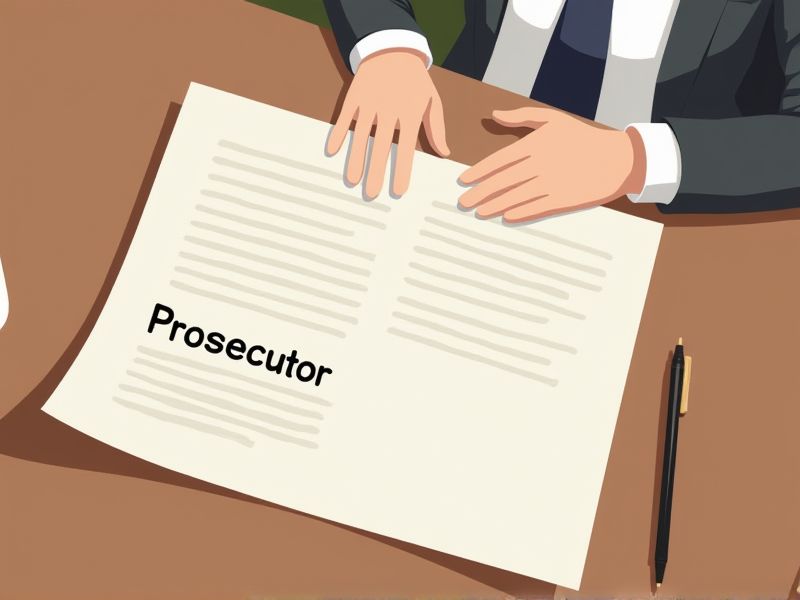
Prosecutors play a pivotal role in the justice system, requiring a deep understanding of legal frameworks and courtroom procedures. To effectively fulfill their duties, they must possess certifications that demonstrate their expertise and commitment to ethical standards. These certifications ensure they remain informed about advancements in the law and can adeptly handle complex cases. Here are some important certifications essential for a prosecutor.
State Bar Admission Certification
State Bar Admission Certification is essential for a prosecutor, as it verifies their legal qualifications and ensures adherence to the professional standards expected in the legal field. Without this certification, a prosecutor lacks the formal recognition to practice law, which can undermine the integrity of legal proceedings. Certification also serves as a gatekeeping measure, ensuring that the prosecutor has passed rigorous exams and character assessments. This process fosters trust and accountability within the justice system, crucial for fair and just prosecution.
Criminal Law Practice Certification
Criminal Law Practice Certification enhances a prosecutor's understanding of complex legal statutes, enabling more effective litigation. Rigorous certification processes ensure that prosecutors possess updated knowledge on evolving precedents and laws. This specialized certification can improve public trust, as certified prosecutors demonstrate a high level of competence and commitment. Certification often results in better case preparation and strategy, positively influencing conviction rates and community safety.
Certified Prosecutor Credential
The Certified Prosecutor Credential ensures a consistent standard of professional excellence, enhancing public trust in the judicial system. It provides specialized training that equips prosecutors with the latest legal knowledge and skills necessary for effectively managing complex cases. The credential serves as a professional benchmark, promoting career growth and credibility within the legal community. By establishing a unified standard, it aids in reducing disparities in prosecutorial practices across different jurisdictions.
Trial Advocacy Certification
Trial Advocacy Certification equips prosecutors with essential courtroom skills, increasing their effectiveness in presenting cases. It ensures they are well-versed in legal procedures and evidential requirements, which enhances the quality of legal proceedings. This certification also signifies a commitment to maintaining high professional standards, fostering public trust in the justice system. With better-prepared prosecutors, the likelihood of fair and just outcomes in trials increases, benefiting society as a whole.
Forensic Evidence Analysis Certification
A Forensic Evidence Analysis Certification equips prosecutors with a deeper understanding of scientific principles, enhancing their ability to evaluate evidence accurately. Enhanced knowledge results in more informed arguments during trial, strengthening case presentations. Certification ensures prosecutors can spot and address potential gaps or weaknesses in forensic evidence, avoiding miscarriages of justice. Understanding forensic processes builds credibility when questioning expert witnesses, earning trust from judges and juries.
Legal Research and Writing Certification
A Legal Research and Writing Certification equips a prosecutor with the skills necessary to analyze complex legal issues effectively. Proficiency in legal writing ensures that a prosecutor can draft compelling arguments and present them clearly in court. Mastery in research bolsters a prosecutor's ability to uncover pertinent case precedents and statutory interpretations. The certification demonstrates a prosecutor's commitment to upholding the rigor and accuracy required in legal proceedings.
Ethics and Professional Responsibility Certification
The Ethics and Professional Responsibility Certification enhances a prosecutor's commitment to upholding justice and maintaining the public trust. It ensures that prosecutors adhere to established legal standards, reducing the risk of misconduct and wrongful convictions. This certification provides a structured framework for navigating complex ethical dilemmas encountered during prosecutions. Consistent ethical training aids in fostering accountability and integrity in the criminal justice process.
Investigative Techniques Certification
A certification in investigative techniques equips prosecutors with the skills needed to analyze evidence more effectively, leading to stronger legal arguments. Enhanced understanding of investigative procedures ensures prosecutors can better assess the integrity and admissibility of evidence. Certification provides a deeper insight into modern investigative tools, enabling prosecutors to stay updated with evolving legal standards. A formal training credential increases the professional credibility and competence of prosecutors, potentially influencing case outcomes.
Mediation and Conflict Resolution Certification
Mediation and conflict resolution certification equips prosecutors with skills to facilitate negotiations and settlements, reducing the need for prolonged court trials. Prosecutors with these certifications can handle disputes more efficiently, leading to faster case resolutions and decreased court backlogs. With enhanced understanding of conflict dynamics, prosecutors can better manage contentious situations, fostering more cooperative interactions between parties. Certification also broadens their professional expertise, making them more versatile in various legal contexts.
Advanced Litigation Strategies Certification
Prosecutors frequently encounter complex legal challenges, and Advanced Litigation Strategies Certification equips them with modern tactics to effectively navigate such intricacies. Courtroom dynamics demand proficient skills in evidence presentation and strategic argumentation, which are covered extensively in the certification. Legal landscapes continually evolve, and staying updated through specialized training ensures prosecutors remain competent and efficient. Maintaining a certification enhances a prosecutor's credibility and demonstrates a commitment to legal excellence.
Summary
When you gain certifications as a prosecutor, your credibility in court proceedings will likely enhance. This enhancement often leads to higher success rates in legal outcomes due to increased trust from judges and juries. Your career advancement prospects tend to broaden, as certifications can distinguish you in your field. Access to specialized knowledge and networks also amplifies your ability to tackle complex cases effectively.
